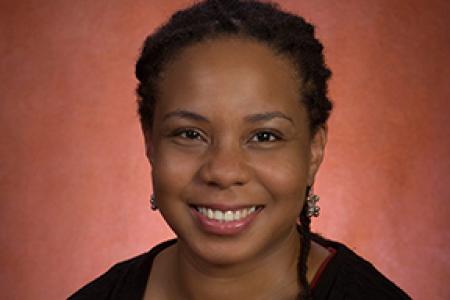Tisha Holmes

Tisha Holmes
Ph.D. (Urban Planning), UCLA, 2015
M.P.A., (Environmental Science and Policy), Columbia University, 2005
B.A., (Political Science; Environmental Studies), Williams College, 2004
Professor Holmes is an associate professor of Department of Urban & Regional Planning and teaches climate change and community resilience, land use planning, and coastal planning. Her research intends to promote grassroots level capacities through community outreach and participatory engagement.
Select Recent and Forthcoming Publications
Transfer of Development Rights for Coastal Adaptation: Conceptual Design and Practical Applications in the US, J. Pʟᴀɴ. Eᴅᴜᴄ. & Rᴇs. (with K. Fang, E. Linkous, & A. Lammers) (2025).
Centering Environmental Justice in US Climate Assessments, Cʟɪᴍᴀᴛɪᴄ Cʜᴀɴɢᴇ 178 (M. Mendez et al.) (2025).
Climate Change is Beyond Any of Us - The Work of Public Health Practitioners in Building Resilience Against Climate Effect (BRACE)Programs. Sustainable Environment, 11(1). (2025) (Lange, Z., Hoover, F. A., Uejio, C., & Holmes, T. T. J.).
Developing Engagement Principles for Climate and Health Research: An Example from a Community-Informed Research Project, 18 Pʀᴏɢ. Cᴏᴍᴍ. Hᴇᴀʟᴛʜ P’ꜱʜɪᴘs: Rᴇs., Eᴅᴜᴄ. & Aᴄᴛɪᴏɴ 551 (2024), (Ulman, A.(m), Lowrie, K., Bulger, G.(d), Herb, J., Holmes, T. T. J., & Butler, W.).
Can Florida’s Coast Survive Its Reliance on Development? Fiscal Vulnerability and Funding Woes under Sea Level Rise, J. ᴏғ Aᴍ. Pʟᴀɴ. Ass’ɴ (in press) (with Shi, L., Butler, W., et al.).
Evaluating Public Health Strategies for Climate Adaptation: Challenges and Opportunities from the Climate Ready States and Cities Initiative, PLOS Cʟɪᴍ. 2(3): e0000102 (2023) (with Joseph HA, Mallen E, McLaughlin M, Grossman E, Locklear A, et al.).
Moving the Needle: Early Findings on Faculty Approaches to Integrate Culturally Competent Pedagogy into Educational Spaces. eJournal of Public Affairs, 7 (2). (Jackson, A., Parker, M., Turner DeVera, L., Garcia-Zambrana, I. Holmes, T., Shiau, E., and Medina, C.) (2018).
Mini-grants to local health departments: an opportunity to promote climate change preparedness. Journal of Public Health Management & Practice. June 21, 2018 (Grossman, E., Hathaway,M., Callihane, M., English, D., Holmes, T., Moran, C., Uejio, C., York, E., Dorevitch, S.) (2018).
Uejio, C., Morano, L.H., Jung, J., Kintzinger, K., Jagger, M., Chalmers, Holmes, T. (2018) Occupational heat exposures among municipal workers. International Archives of Occupational and Environmental Health 91,705-715
Holmes, T. (2017). Ecotourism and rural disaster resilience in Trinidad & Tobago. In Alan Lew, & Joseph Cheer (Eds.), Tourism, Resilience and Environmental Change. Routledge.
Pincetl, S., Chadwick, B., & Holmes, T. (2012). An expanded urban metabolism method: Towards a systems approach for assessing urban energy processes and causes. Landscape Urban Planning, 107, 193-202.
Holmes, T. (2010). Sa ou fe, se li ou we: Rebuilding governance in post-earthquake Haiti. Critical Planning Journal, 17, 141-152.
